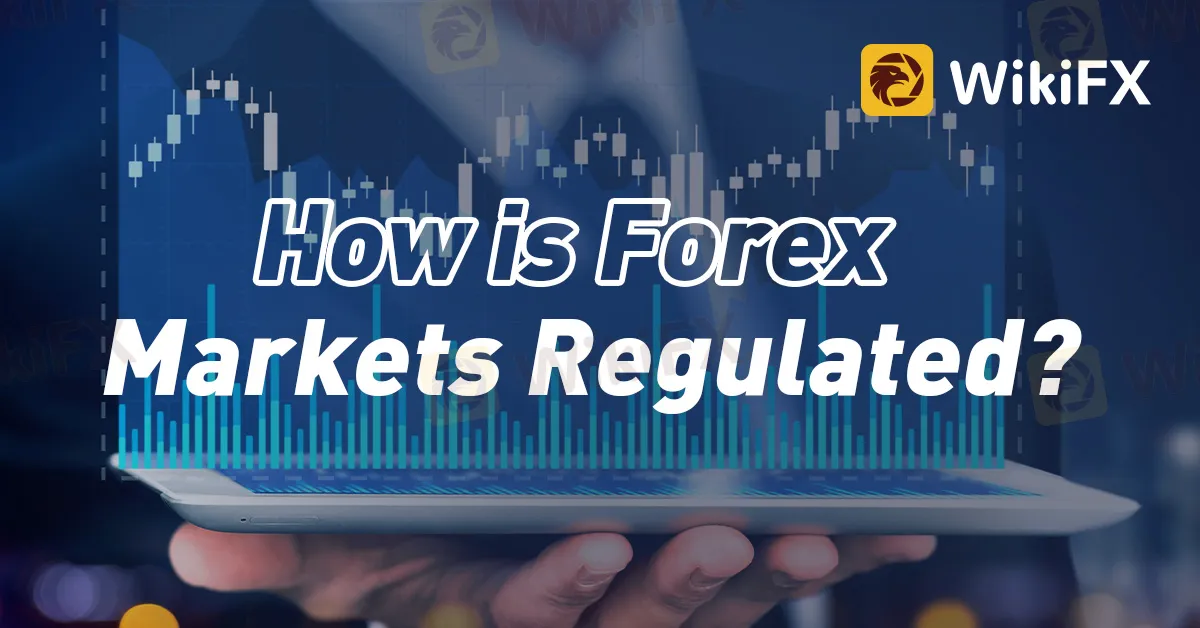简体中文
繁體中文
English
Pусский
日本語
ภาษาไทย
Tiếng Việt
Bahasa Indonesia
Español
हिन्दी
Filippiiniläinen
Français
Deutsch
Português
Türkçe
한국어
العربية
How are Forex Markets Regulated?
Abstract:As a decentralized and international market, forex trading requires effective regulation to ensure fair practices, protect investors, and maintain market stability. In this article, we will explore how forex markets are regulated.

Introduction
As a decentralized and international market, forex trading requires effective regulation to ensure fair practices, protect investors, and maintain market stability. In this article, we will explore how forex markets are regulated.
The Role of Regulatory Authorities
Regulatory authorities play a crucial role in overseeing and supervising the forex market. These agencies operate at both the national and international levels and are responsible for enforcing regulations, licensing forex brokers, and monitoring market participants. Some prominent regulatory authorities include:
National Regulatory Bodies
Each country has its own regulatory body that oversees forex trading within its jurisdiction. Examples include the U.S. Commodity Futures Trading Commission (CFTC) and the Financial Conduct Authority (FCA) in the United Kingdom. These bodies establish rules and guidelines, conduct inspections, and address investor complaints.
International Regulatory Organizations
Organizations such as the International Organization of Securities Commissions (IOSCO) and the Financial Stability Board (FSB) coordinate efforts among national regulatory bodies to establish international standards and promote regulatory harmonization across borders.
Licensing and Compliance
Forex brokers, the intermediaries facilitating currency trading, must adhere to strict regulatory requirements to obtain licenses. Regulatory authorities evaluate the broker's financial stability, operational procedures, risk management systems, and client fund protection measures. Compliance with anti-money laundering (AML) and know-your-customer (KYC) regulations is also mandatory to prevent illicit activities.
Segregation of Client Funds
Regulated forex brokers are required to segregate client funds from their own operational accounts. This separation ensures that client funds remain protected in the event of a broker's insolvency. Regulators monitor brokers' adherence to these rules and conduct periodic audits to verify compliance.
Transparency and Disclosure
Regulated forex brokers are obligated to provide transparent and accurate information to their clients. This includes disclosing risks associated with forex trading, transaction costs, leverage terms, and potential conflicts of interest. Regulatory bodies enforce these transparency standards to protect investors from misleading or fraudulent practices.
Risk Management and Leverage
To protect traders from excessive risk-taking, regulatory bodies often impose limits on leverage, which determines the ratio of a trader's capital to borrowed funds. By restricting leverage levels, regulators aim to safeguard traders from incurring significant losses beyond their invested capital.
Investor Protection
Regulatory authorities often have mechanisms in place to handle investor complaints and disputes with forex brokers. These processes may involve mediation, arbitration, or legal action, ensuring that investors have recourse when faced with unfair treatment or fraudulent practices.
Market Surveillance
Regulatory bodies actively monitor the forex market to detect and prevent market manipulation, insider trading, and other illegal activities. They employ sophisticated surveillance systems and collaborate with financial institutions and law enforcement agencies to maintain market integrity.
Conclusion
Effective regulation is vital for maintaining trust and stability in the forex market. Regulators oversee brokers' compliance with stringent requirements, promote transparency, and safeguard investor interests. By establishing a robust regulatory framework, authorities strive to create a level playing field, protect traders, and foster the long-term sustainability of the global forex market.

Disclaimer:
The views in this article only represent the author's personal views, and do not constitute investment advice on this platform. This platform does not guarantee the accuracy, completeness and timeliness of the information in the article, and will not be liable for any loss caused by the use of or reliance on the information in the article.
Read more

Countdown to WikiEXPO Dubai 2024 — “Seeing Diversity, Trading Safely”
With the booming development of the global Fintech industry, WikiEXPO Dubai 2024, hosted by WikiGlobal and co-organized by WikiFX, will officially kick off on November 27, themed “Seeing Diversity, Trading Safely.” This event will bring together global elites to explore the future of Fintech.

CySEC Revokes UFX Broker Licence as Reliantco Halts Global Operations
The Cyprus Securities and Exchange Commission (CySEC) has officially withdrawn the Cyprus Investment Firm (CIF) licence of Reliantco Investment Limited, the operator of UFX.com. This decision followed a six-month period during which the company failed to provide any investment services or perform investment activities.

Elon Musk Sparks Debate Over Presidential Power and Federal Reserve Independence
Elon Musk has voiced his support for the controversial idea that United States presidents should have a role in shaping Federal Reserve policies. This endorsement aligns with recent remarks from President-elect Donald Trump, who has hinted at revisiting the central bank's independence, a long-held tradition in the nation's financial governance.

Consob Sounds Alarm: WhatsApp & Telegram Users Vulnerable to Investment Scams
Italy's financial regulator, Consob, has raised alarms over an increase in fraudulent schemes targeting investors through mobile messaging platforms such as WhatsApp and Telegram.
WikiFX Broker
Latest News
BSP Shuts Down Uno Forex Over Serious AML Violations
ACY Securities Expands Global Footprint with South Africa Acquisition
Tokyo Police Arrest 4 for Unregistered FX Trading Scheme
Rupee gains against Euro
WikiEXPO Global Expert Interview: The Future of Financial Regulation and Compliance
DFSA Warns of Fake Loan Approval Scam Using Its Logo
Consob Sounds Alarm: WhatsApp & Telegram Users Vulnerable to Investment Scams
CySEC Revokes UFX Broker Licence as Reliantco Halts Global Operations
GCash, Government to Launch GBonds for Easy Investments
Bitcoin ETF Options Get Closer to Reality with CFTC Clarification
Currency Calculator


